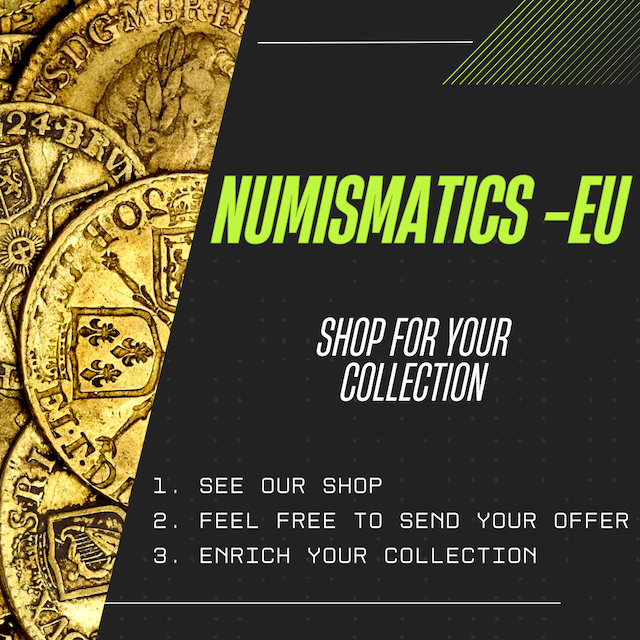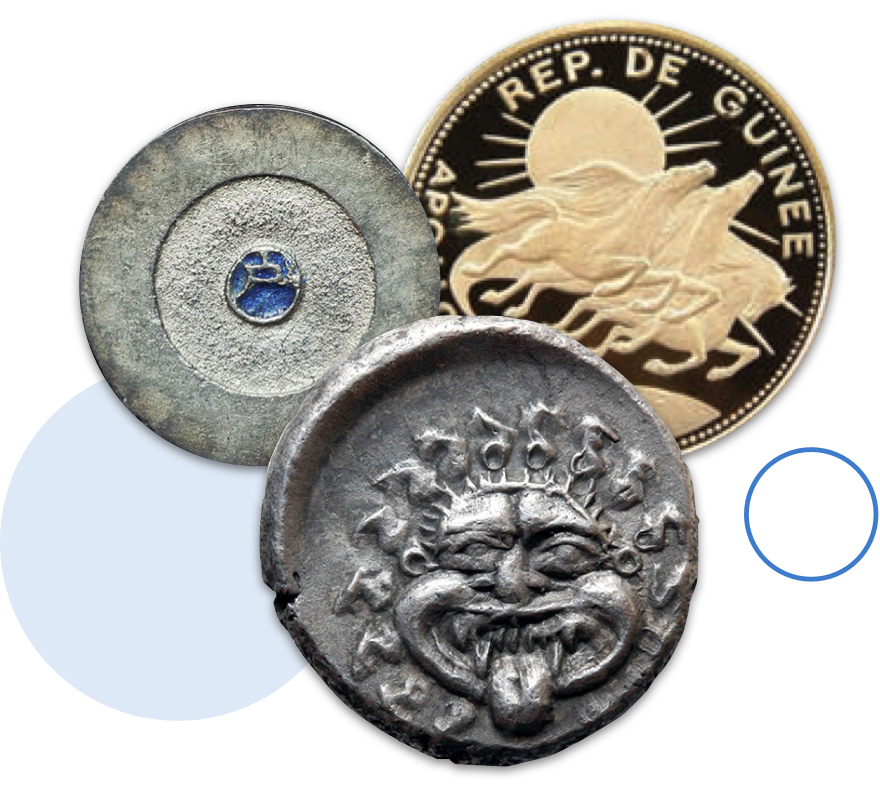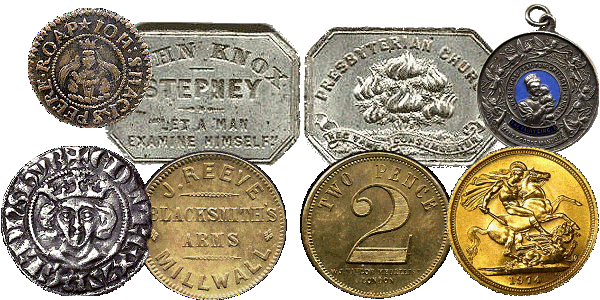Great Suggestions On Selecting Gold And Banknote Design
Great Suggestions On Selecting Gold And Banknote Design
Blog Article
How Can I Utilize Numismatics To Do Research On Mints If I Have A Database Available?
Researching numismatics with regards to mints with databases requires specific strategies for gathering comprehensive data about coin production, historical contexts, as well as the evolution of minting techniques. This is a methodological approach to choosing a database Choose a database which has a specialization in numismatics and historical information on coinage. Numista or online catalogs of major mints such as the United States Mint, the Royal Mint or academic databases which archive research in numismatics are all possible options.
Define Research Focus: Specify your research objectives. Are you interested in learning about the history of a particular mint, its production volume and technological advancements in minting or the economic and cultural impact? Tailor your search queries accordingly.
Search Strategy: Use specific keywords that pertain to mints and coin minting, for example "mint production", "coin minting technique" as well as the names or titles of the mints that you're researching. Use advanced search options to narrow results by date, type of document (such as academic reports, historical articles, or catalog entries) and geographical region.
Data Collection: Collect data regarding the date of founding, its historical period of operation, the kinds of coins produced, the technology used (such hand or machine striking) and also any notable changes or events in minting over time. Catalogs or databases that provide information on specific coins minted according to the date, denomination, style, etc.
Analysis: Examine and compare the information to identify trends or patterns that could be observed across various geographical regions or time periods. Examine the changes in the style of designs for coins to modifications in alloys of metal and technological advancements.
Cross-Referencing Validate findings by comparing data from various sources in the same database. It ensures that the research you conduct is comprehensive and accurate.
Documentation - Document your findings, citing sources you consulted and mentioning the methodologies that were employed. Keep track of your search terms, databases and the relevance of each source with respect to the research objectives.
Keep up to date: Numismatic research evolves constantly, with new publications and discoveries being made. You can stay current by checking the database frequently to check for new information and collections that are newly digitalized, or recent articles.
These steps can assist you to leverage databases in order to do thorough research about numismatics and mints. This method allows a detailed analysis of the technological, cultural and historic aspects of production of coins. It provides valuable insights into the evolution in numismatic practices. See the top rated click this link for mint condition for blog info including banknote collection, treasury, currency authentication, real, coin news, coin pressing, legal tender, coin edge, circulated, rare banknotes and more.
How Can I Find Out More About Numismatics In Relation To Coin Dealers Using A Database?
To research numismatics in relation to dealers in coin and dealers, you'll need databases that specialize in dealers' listings and numismatics. Additionally, you can use historical transactions and market trends. A method that is structured is provided to assist you in conducting this type of research. There are many sources to pick from, including online dealer listings, numismatic exchanges that are provided by numismatic associations (like the Professional Numismatists Guild), auction house databases, or historical archives containing the records of numismatic transactions.
Define Research Focus: Specify your research objectives. Are you looking to learn the historical background of dealers in coin or their histories, know the prevailing market trends in numismatics, how coins have changed in value over time, or the impact dealers play on the trends in collecting? Find out the key to your research.
Search Strategy: Add keywords like "coin dealers," numismatic market," or "dealer directories" and, if applicable include the names of specific dealers or geographic regions. Advanced search options let you to filter by date, dealer type (such old coins modern coin, antique coins, rare coins) and type of transaction (auctions and personal sales, auctions, etc.).
Data Collection: Access information about dealers in the field. This includes their names, business addresses and places of business along with details on particularties, operating years, and profiles. Gather details about notable dealers as well as their contributions to numismatic research or collecting communities, as well as their participation in auctions and sales.
Analysis: Study data to better know the role dealers have in numismatics. Examine the role of dealers in influencing market dynamics.
Cross-Reference: Ensure the accuracy of your study by cross-referencing data from multiple databases, dealer directories and auction records. This can help you ensure that the research you conduct is thorough and accurate. It will also provide you with a better understanding of the roles and roles played by coin dealers.
Documentation: Document your findings in a systematic manner by citing sources and noting methodologies used. Include the databases utilized as well as the search term(s) employed, and the importance of each source to your questions.
Stay updated: New auctions and dealers joining the market, along with market trends are always changing. Stay informed by reading the latest news from numismatic associations auctioneers, auctioneers, as well as market websites for the most recent developments and trends in numismatic trading and dealer-related activities.
These steps can assist you to use databases to investigate the subject of numismatics in relation to dealers in coin. This method lets you study the history of dealers in the field, their market influences and also their contributions to scholarly research they have contributed to numismatics. Check out the recommended czech coins for site examples including coin rarity, coin club, coin mintmark, coin, gold coins, penny, banknote storage, dinar, uncirculated coins, banknote artist and more.
How Can I Conduct Research On Numismatics With Respect To Legal Experts With A Database On Numismatics?
A structured approach to conducting this research: This is a method that can be structured for conducting such studies. Database selection: Choose databases that focus on legal research, numismatic law and court cases involving the numismatic issue, as well as academic publications about legal aspects of numismatics. Legal research platforms such as Westlaw and LexisNexis are examples, as well with numismatic journals, publications by organizations that specialize in numismatics, as well as numismatic law journals.
Define Research Focus: Specify your research objectives. Are you interested in the legal frameworks which govern coinage and currency, numismatic conflict, regulations for circulation and production of coins, or legal interpretations of the authenticity of numismatics and ownership? Find out where you would like to target your search.
Search Strategy Make use of keywords like "numismatic laws,"" "legal aspects" of coinage, "numismatic disputes," as well as the legal concept or cases (such an authenticity, ownership and counterfeiting). Use advanced search features to filter results by date, location (national or international) as well as legal subjects that pertain to numismatics.
Data collection: Access legal precedents, court decisions as well as legislative texts and articles that deal with numismatic laws. Find case summaries as with legal analyses, interpretations, or pertinent statutes. Also, gather historical perspectives and details about numismatic law.
Analysis: Analyze and interpret the data in order to identify the legal challenges and implications of numismatics. Discover how the legal frameworks affect numismatic transactions and processes such as collection management, authentication, and international trade. Compare and contrast legal interpretations in different jurisdictions and historical periods.
Cross-Referencing. Verify what you have identified by cross-referencing data from different databases journals, courts files and academic papers. This ensures precision and accuracy in your research, providing a comprehensive view of the legal landscape in Numismatics.
Documentation: Documentation should be structured, containing reference to sources and methods used. Notate the database names, search terms, and relevance of each resource to the research question.
Stay Current: Numismatic legislation and legal interpretations are constantly changing with legislative changes, court decisions and other developments. Keep abreast of legal developments by keeping up-to-date on databases of legal information, publications on the law of numismatics, and numismatic societies.
By following these steps, you will be able to allow you to efficiently use databases to study numismatics using the aid of experts in the field of law. This technique will allow for an in-depth study of legal frameworks as well as issues that are entwined with numismatics. Additionally, it provides insight on the legal issues that govern coinage and collection. Check out the top euro for site advice including coin magazine, peso, engraving, real, currency forum, coin expo, banknote authenticity, dime, banknote book, zloty and more.
How Do I Use Databases To Study Numismatics In Relation To Publications And Journals?
Researching numismatics with regards to publications and journals involves the use of databases that specialize in numismatic literature, scholarly articles, historical publications, and academic journals. This is a methodical procedure for conducting this research: Database selection: Choose databases that specialize in the field of numismatic literature as well as scholarly journals and academic articles. These include databases that are online, such as JSTOR, Google Scholar, journals from numismatic societies (such as the American Numismatic Society's publications), and catalogs of libraries that have numismatic collections.
Define Research Focus: Specify your research objectives. Are you interested in learning more about numismatics and coin types, periods, cultural, technological advances in the production of coins or their economic impact? Find out what you're looking for to help guide your exploration.
Search Strategy Utilize keywords such as "numismatics," “numismatic publications," "numismatic periodicals," and include coin types or topics that are relevant (such for medieval coins for ancient coins), if applicable. Search results can be narrowed according to author affiliations, date and types of publications (articles, conferences, books).
Data Collection: Find data from numismatic magazines as well as publications. Search for information like article titles, authors, and abstracts. Also, gather publication dates and bibliographic data. Find databases that allow you to access full-text articles or digital archives, like historic numismatic journal articles.
Analyze information to discover scholarly contributions in numismatics and trends. Evaluation: Examine the methods in numismatics, the interpretations of iconography and coinage symbols, numismatic catalogue standards, and the growth over time of numismatic academic work.
Cross-Referencing: Verify your research findings by comparing information across numerous databases, journal, library catalogs and institutional repositories. This guarantees completeness and precision in your research. This also gives insight into the vastness of numismatic material.
Documentation: Document all your findings, noting which sources you consulted and the methods you used. Detail the databases that you have used and the search term(s) employed, and the relevance of every source to your question.
Research and publications in numismatics are always evolving, with new interpretations and discoveries. Stay up to date by keeping track of updates from numismatic societies, academic journals and scholarly databases for the latest research findings and publications in the field of numismatics.
Take these steps to effectively utilize databases to explore the numismatics of publications and their relationship to publications and journals. This technique allows for comprehensive examination of scholarly works and research methodologies provided by the numismatic literature. It also provides historical insight. See the most popular coin society for site tips including pound, banknote, treasury, design, coin appraisal, coin production, copyright, gold coins, obsolete currency, banknote printing and more.
How Do I Utilize The Database To Look Up Numismatics With Regards To Industry Consultants?
Here's a structured approach to conducting research like this: Database Selection: Select databases that focus on consulting companies, industry reports and publications related to numismatics. Here's a systematic approach to conduct research on this subject: Database Selection: Choose databases that focus on consulting firms, industry reports and other publications that are relevant to numismatics. A few examples are websites or business directories as well as publications from numismatic groups, and databases that specialize in specific industries.
Define Research Focus: Specify your research objectives. Are you keen to know about the consulting services that are available to numismatic businesses? Do you want to know the market analysis of Numismatics? What are the areas of expertise for industry consultants and what trends they identify? Find out the key to your exploration.
Search strategy: Use keywords, such as "numismatic firms", "numismatic firms" and "market reports on coins." If appropriate you can also add specific areas of expertise, or geographical regions. Utilize advanced search options to filter results by dates, consultants' specialties, and consulting services offered.
Data Collection: Access data on consulting firms specializing in numismatics and industry experts who provide services to businesses dealing with numismatics. You can gather information on consultants, their specialties (such as market analysis, collection, and authentication management) testimonials from clients, reports from industry consultants as well as other information.
Analysis: Examine and comprehend the contributions and roles of consultants from the industry to the field of numismatics. Examine the techniques and knowledge employed by consultants who advise on investment in numismatics, trends in the market, or collection management.
Cross-Referencing - Verify your findings through cross-referencing across databases, consulting firm directories and publications from numismatic societies. This allows you to conduct a thorough and accurate research. Also, you'll be able to see the full image of the industry of consulting in the field of numismatics.
Documentation - Record your findings in a systematic way by noting the sources and methods. Keep track of details on the databases used, the search terms used, as well as the significance of each source to your research needs.
Keep yourself informed. Market trends, consulting services, and the latest economic developments and regulatory updates will affect the numismatic market. You can stay up to the latest industry trends by following the websites of consulting firms as well as industry reports.
Following these steps will allow you to gain an understanding of the world of numismatics and industry experts. This approach will allow for an in-depth analysis of market analysis and strategic insights offered by consultants working in the numismatic sector. They can offer valuable insights into business operations as well as investment strategies and market dynamics. View the recommended inquiry for proof coins for site tips including rare coins, coin dealer, coin grading, peso, coin minting, treasury, coin minting, silver, rare banknotes, currency catalog and more.